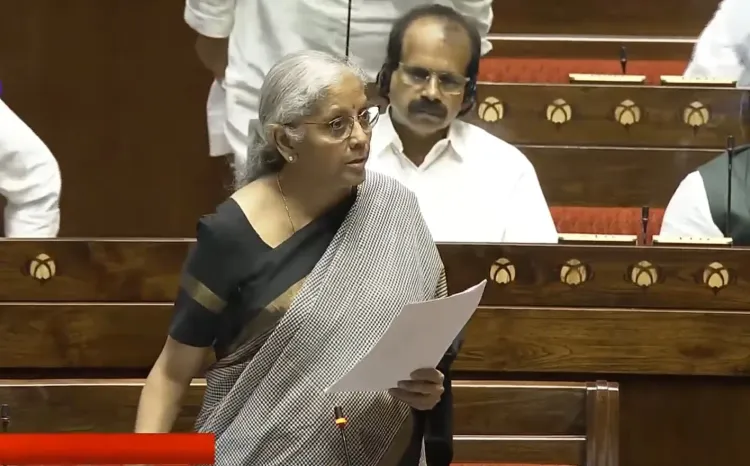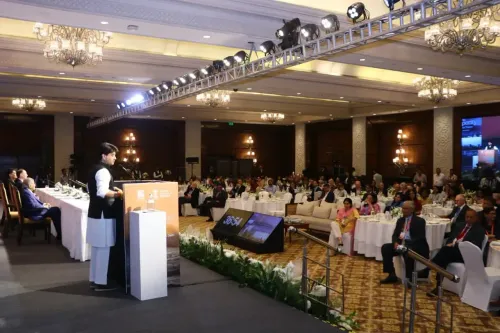Did Parliament Approve the New Income Tax Bill?

Synopsis
Key Takeaways
- New Income Tax Bill aims to replace the Income Tax Act, 1961.
- Incorporates 285 recommendations from the Parliamentary Select Committee.
- Reduces tax complexity by nearly 50% for taxpayers.
- Adjustments in tax slabs benefit the middle class.
- Designed to minimize litigation and enhance compliance.
New Delhi, Aug 12 (NationPress) The Rajya Sabha on Tuesday returned the revised Income Tax Bill alongside the Taxation Laws (Amendment) Bill, 2025, to the Lok Sabha, following parliamentary protocol.
Finance Minister Nirmala Sitharaman remarked during the upper house discussion that the intricate and convoluted structure of the Income Tax Act, 1961 led to numerous interpretations and unnecessary disputes. She stated, 'We faced an overwhelming number of litigations. The Act's complexity and extensive wording, developed over decades with varying styles, rendered it incredibly tedious for users.'
Following a voice vote, the Rajya Sabha has approved the Bill, which will now be forwarded to the President for assent, effectively replacing the over six-decade-old Income Tax Act, 1961.
The Income Tax (No 2) Bill, 2025, was passed in the Lok Sabha on Monday after Finance Minister Sitharaman introduced the amended Bill, which incorporates the majority of suggestions from the Parliamentary Select Committee.
The updated Bill aims to enhance fairness and clarity while aligning the law with current provisions. According to her, this new draft intends to provide lawmakers with a consolidated, up-to-date version that reflects all recommended changes.
Furthermore, Sitharaman mentioned that suggestions from the select committee were essential for conveying the accurate legislative intent. 'Corrections in drafting, phrase alignment, consequential amendments, and cross-referencing have been made,' she explained, noting that the earlier Bill was retracted to prevent confusion.
The revised Income Tax Bill 2025 adopts 285 recommendations from the Parliamentary Select Committee. This new legislation seeks to simplify tax procedures and rectify past shortcomings, potentially transforming the income tax framework in the nation.
Last week, the government formally withdrew the Income Tax Bill, 2025, which had been introduced in the Lok Sabha on February 13 to supersede the existing Income Tax Act, 1961.
BJP MP Baijayant Panda, who led the Parliamentary Select Committee that reviewed the legislation, stated that the new law, once enacted, will simplify India’s long-standing tax structure, reduce legal confusion, and assist individual taxpayers and MSMEs in avoiding unnecessary litigation.
'This new Act will invigorate growth by making taxes more comprehensible and easier to comply with, thereby minimizing disputes and litigation.'
Panda also noted, 'Under Prime Minister Narendra Modi's leadership, over 1,500 laws have been repealed and revised, helping India emerge as the fastest-growing and now the fourth-largest economy globally.'
The current Income Tax Act of 1961 has been amended more than 4,000 times and contains over 500,000 words, resulting in excessive complexity. The new Bill aims to simplify this by nearly 50%, making it significantly more user-friendly for ordinary taxpayers, according to Panda. The parliamentary committee highlighted numerous drafting errors and proposed amendments to eliminate ambiguity.
In the revised Bill, tax slabs and rates have been adjusted to benefit all taxpayers. The new structure significantly reduces taxes for the middle class, allowing them to retain more income, thereby boosting household consumption, savings, and investment, according to the government.









